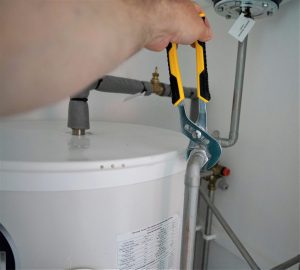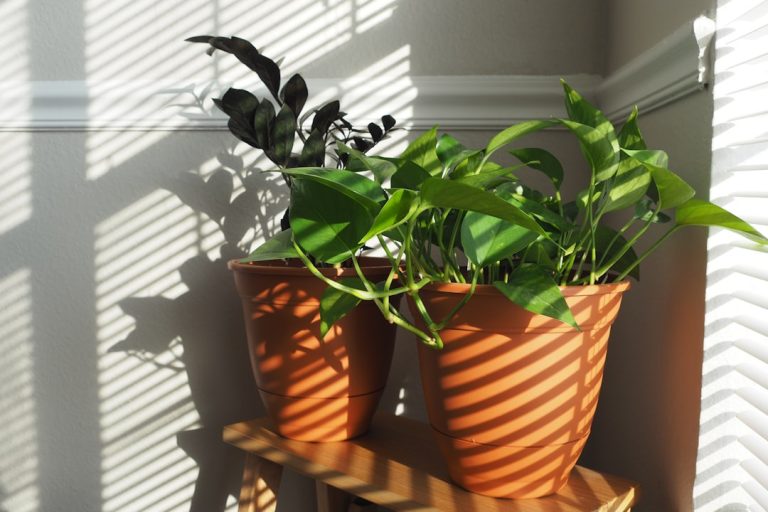Heating systems are an essential component of any home, providing warmth and comfort during the colder months. They are responsible for maintaining a comfortable indoor temperature and ensuring that residents are protected from the harsh elements outside. Understanding the basics of heating systems is crucial for homeowners, as it allows them to make informed decisions about their heating needs.
Heating systems come in various forms, but two of the most common options are boilers and heat pumps. Boilers use water or steam to distribute heat throughout a home, while heat pumps extract heat from the air or ground and transfer it indoors. Both systems have their advantages and disadvantages, and it is important to understand their differences before making a decision.
Key Takeaways
- Heating systems are essential for keeping homes warm and comfortable.
- Boilers use fuel to heat water, while heat pumps use electricity to transfer heat from the air or ground.
- Heat pumps are generally more efficient and eco-friendly, but boilers may be more affordable upfront.
- Installation and maintenance requirements vary between the two systems.
- Heat pumps have a longer lifespan and may be more effective in milder climates, while boilers may be better for colder regions.
Boiler vs Heat Pump: What’s the Difference?
Boilers and heat pumps operate on different principles to provide heat to a home. Boilers work by heating water or producing steam, which is then circulated through pipes or radiators to warm up the space. The heated water or steam can also be used for other purposes, such as hot water supply or radiant floor heating.
On the other hand, heat pumps extract heat from the air or ground and transfer it indoors. They use refrigerant to absorb heat from the outside environment and release it inside the home. Heat pumps can also be used for cooling during the summer months by reversing the process and extracting heat from indoors.
Efficiency: Which is More Eco-Friendly?
When it comes to environmental impact, heat pumps are generally considered more eco-friendly than boilers. This is because heat pumps do not burn fossil fuels to generate heat; instead, they rely on electricity to power their operations. As a result, they produce fewer greenhouse gas emissions and have a lower carbon footprint compared to boilers.
In terms of energy efficiency ratings, both boilers and heat pumps can achieve high levels of efficiency. Boilers are typically rated by their Annual Fuel Utilization Efficiency (AFUE), which measures the percentage of fuel that is converted into usable heat. High-efficiency boilers can have AFUE ratings of 90% or higher, meaning that they convert 90% or more of the fuel into heat.
Heat pumps, on the other hand, are rated by their Heating Seasonal Performance Factor (HSPF) and Coefficient of Performance (COP). HSPF measures the efficiency of the heat pump’s heating mode, while COP measures its efficiency in both heating and cooling modes. High-efficiency heat pumps can have HSPF ratings of 10 or higher and COP ratings of 3 or higher.
Cost Comparison: Which is More Affordable?
| Product/Service | Cost | Duration | Additional Fees |
|---|---|---|---|
| Option A | 100 | 1 month | None |
| Option B | 75 | 2 months | Setup fee of 25 |
| Option C | 50 | 3 months | Early termination fee of 20 |
When it comes to cost, boilers and heat pumps have different considerations. Boilers tend to have lower upfront costs compared to heat pumps, especially if the home already has a boiler system in place. The cost of a new boiler installation can vary depending on factors such as the size of the system, the type of fuel used, and any additional components required.
Heat pumps, on the other hand, tend to have higher upfront costs due to the need for specialized equipment and installation. The cost of a heat pump installation can vary depending on factors such as the size and type of heat pump, the complexity of the installation, and any additional components required. However, it is important to consider long-term costs when comparing boilers and heat pumps.
Installation: What are the Differences?
The installation process for boilers and heat pumps can vary significantly. Installing a boiler typically involves connecting it to a water supply and a fuel source, such as natural gas or oil. The boiler may also need to be connected to a chimney or venting system to safely remove combustion gases. In some cases, additional components such as expansion tanks or circulator pumps may be required.
Installing a heat pump involves more complex procedures, as it requires specialized equipment and knowledge. The heat pump unit needs to be installed outdoors, and the refrigerant lines need to be properly connected to the indoor unit. In some cases, additional components such as air handlers or ductwork may be required for the heat pump system to function properly.
Maintenance: Which System Requires Less Upkeep?

When it comes to maintenance, boilers and heat pumps have different requirements. Boilers require regular maintenance to ensure their efficient and safe operation. This includes tasks such as cleaning or replacing the air filters, inspecting and cleaning the burners, checking for leaks or corrosion, and testing the safety controls. It is also recommended to have a professional boiler service performed annually to ensure that the system is in good working order.
Heat pumps also require regular maintenance to ensure their optimal performance. This includes tasks such as cleaning or replacing the air filters, inspecting and cleaning the outdoor unit, checking the refrigerant levels, and testing the electrical connections. It is also recommended to have a professional heat pump service performed annually to check for any issues and make any necessary repairs.
Lifespan: Which System Lasts Longer?
The expected lifespan of boilers and heat pumps can vary depending on factors such as the quality of the equipment, the level of maintenance performed, and the operating conditions. Generally speaking, boilers tend to have a longer lifespan compared to heat pumps.
Boilers can last anywhere from 15 to 30 years or more, depending on their quality and maintenance. With proper care and regular maintenance, a well-maintained boiler can provide reliable heating for many years.
Heat pumps typically have a shorter lifespan compared to boilers, ranging from 10 to 20 years. However, advancements in technology have led to more durable and efficient heat pump systems that can last longer with proper care and maintenance.
Heating Capacity: Which System is More Effective?
When it comes to heating capacity, both boilers and heat pumps have their strengths and weaknesses. Boilers are known for their ability to provide consistent and reliable heat, even in extreme temperatures. They can quickly heat up a space and maintain a comfortable indoor temperature, making them ideal for colder climates.
Heat pumps, on the other hand, may struggle to provide sufficient heat in extremely cold temperatures. As the outdoor temperature drops, the heat pump’s ability to extract heat from the air or ground decreases. In these situations, a backup heating system may be required to supplement the heat pump’s output.
Environmental Impact: Which System is Better for the Planet?
When it comes to environmental impact, heat pumps are generally considered better for the planet compared to boilers. Heat pumps do not burn fossil fuels to generate heat; instead, they rely on electricity to power their operations. This means that they produce fewer greenhouse gas emissions and have a lower carbon footprint compared to boilers.
Boilers, on the other hand, burn fossil fuels such as natural gas or oil to generate heat. This combustion process releases carbon dioxide (CO2) and other greenhouse gases into the atmosphere, contributing to climate change and air pollution.
Which System is the Best Choice for Your Home’s Heating Needs?
In conclusion, both boilers and heat pumps have their advantages and disadvantages when it comes to home heating. Boilers are known for their reliability and ability to provide consistent heat, especially in colder climates. They also tend to have lower upfront costs compared to heat pumps.
On the other hand, heat pumps are more eco-friendly and energy-efficient compared to boilers. They can provide both heating and cooling capabilities, making them a versatile option for homeowners. However, they may struggle to provide sufficient heat in extremely cold temperatures.
When choosing a heating system for your home, it is important to consider factors such as your climate, energy efficiency goals, budget, and personal preferences. Consulting with a professional HVAC contractor can help you make an informed decision and ensure that your heating system meets your specific needs.
If you’re interested in learning more about eco-friendly home heating options, you might also want to check out this informative article on “The ABCs of Recycling: Understanding the Basics” from Eco Friendly Home and Garden. It provides valuable insights into the importance of recycling and how it can contribute to a sustainable lifestyle. Understanding the basics of recycling is essential for anyone looking to make environmentally conscious choices, just like those considering the benefits of a boiler vs heat pump.
FAQs
What is a boiler?
A boiler is a heating system that uses water to generate heat. It heats water in a tank or boiler and then distributes the hot water or steam through pipes to radiators or baseboard heaters.
What is a heat pump?
A heat pump is a heating and cooling system that moves heat from one place to another. It extracts heat from the air or ground outside and transfers it inside to heat a home in the winter. In the summer, it reverses the process to cool the home.
What are the differences between a boiler and a heat pump?
The main difference between a boiler and a heat pump is the way they generate heat. A boiler uses water to generate heat, while a heat pump moves heat from one place to another. Additionally, boilers are typically used for heating only, while heat pumps can be used for both heating and cooling.
Which is more energy-efficient, a boiler or a heat pump?
In general, heat pumps are more energy-efficient than boilers. This is because they move heat from one place to another, rather than generating heat from scratch. However, the efficiency of both systems depends on a variety of factors, including the climate, the size of the home, and the type of fuel used.
Which is more expensive, a boiler or a heat pump?
The cost of a boiler or a heat pump depends on a variety of factors, including the size of the system, the type of fuel used, and the installation costs. In general, heat pumps tend to be more expensive upfront than boilers, but they can save money in the long run due to their energy efficiency.
Which is better for the environment, a boiler or a heat pump?
Heat pumps are generally considered to be better for the environment than boilers. This is because they use electricity to move heat, rather than burning fossil fuels to generate heat. However, the environmental impact of both systems depends on the source of the electricity or fuel used.


